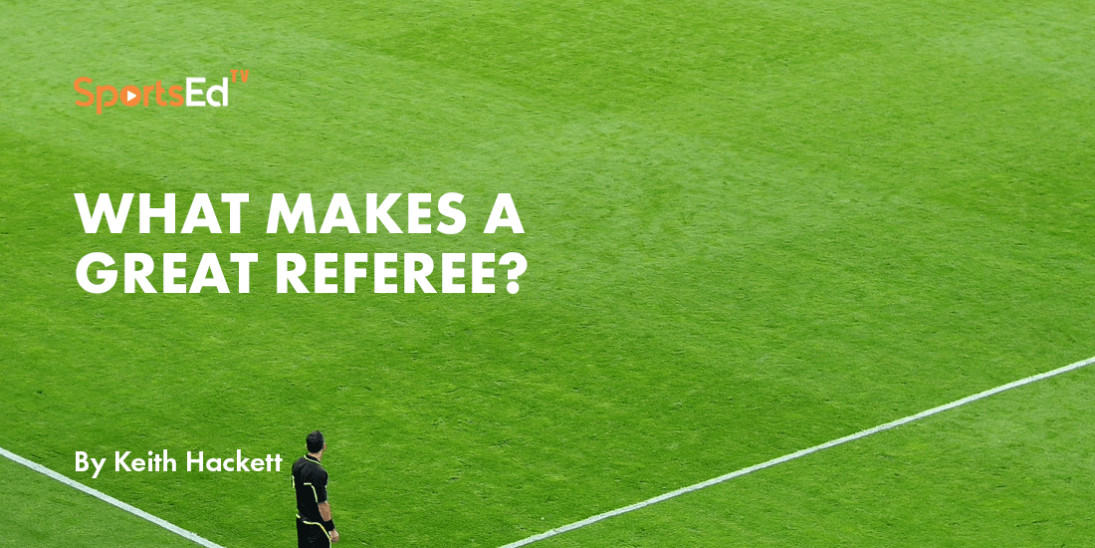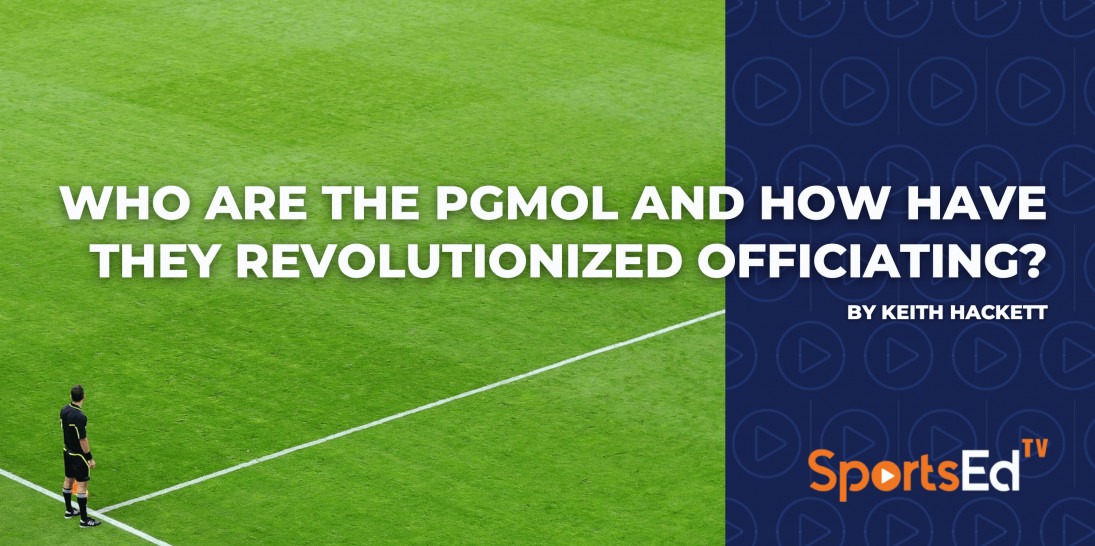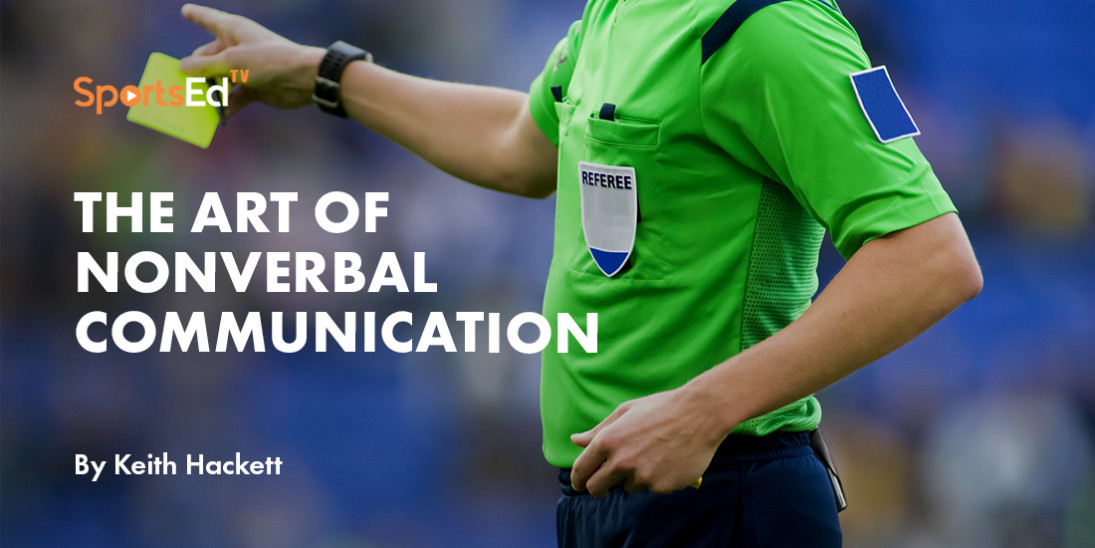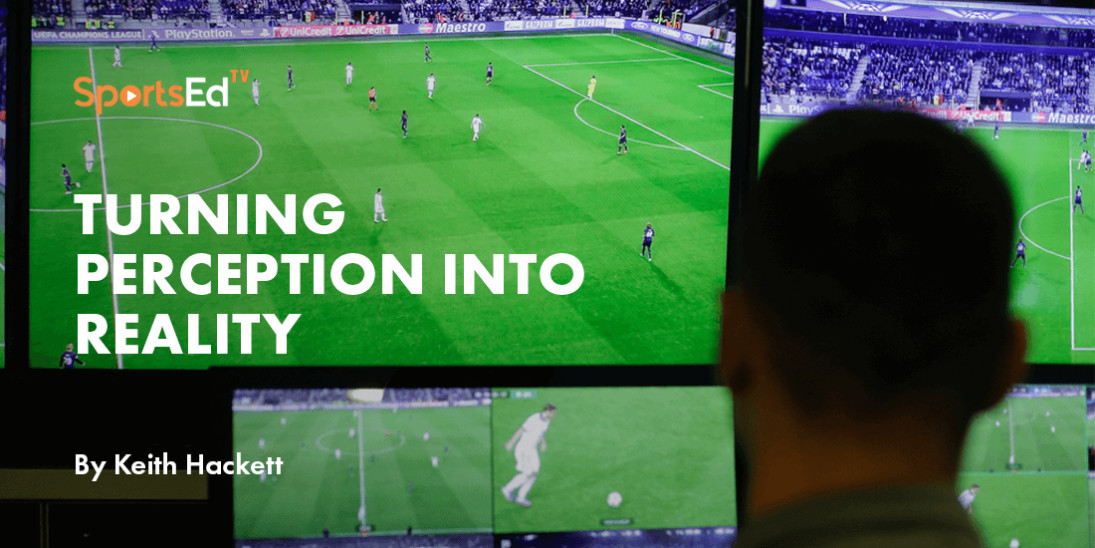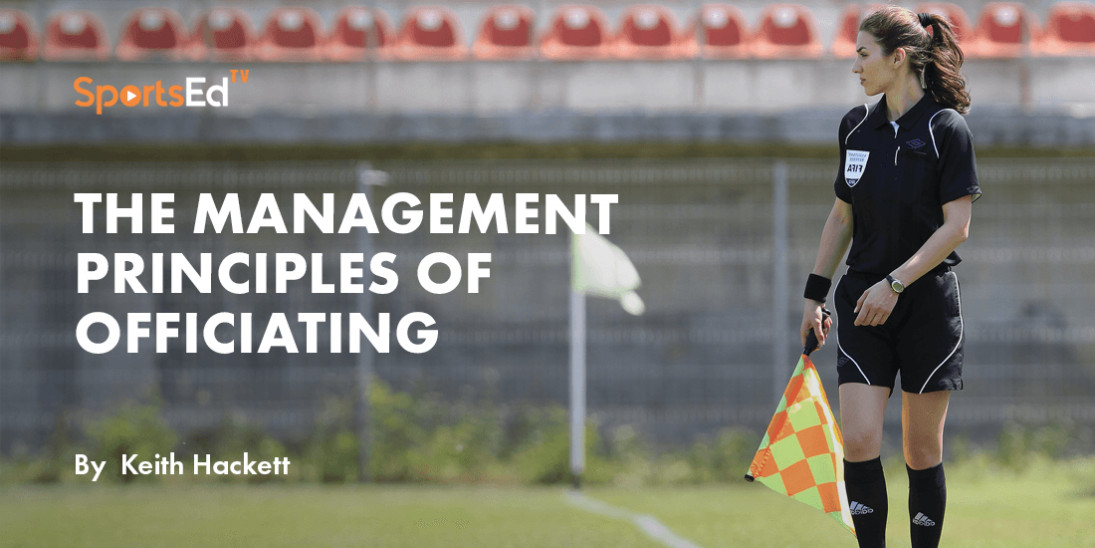Soccer
Welcome and thanks for visiting...

How To Become A Better Referee
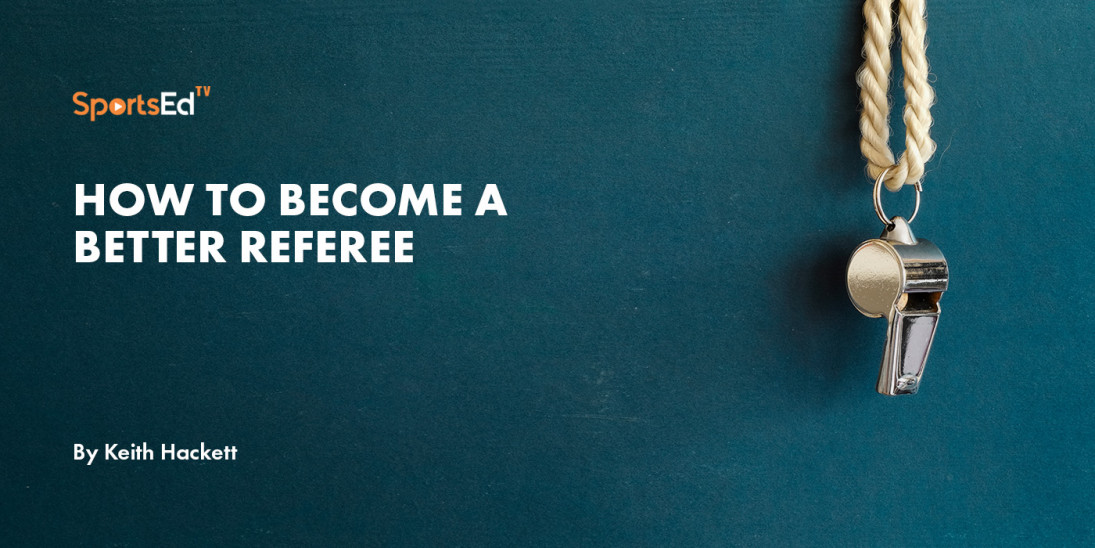
SportsEdTV Soccer is committed to bringing athletes, coaches, and parents pro-level Soccer education videos for FREE. All levels, anywhere, anytime. Check out our full instructional library and sign up to join our Soccer community.
Keith Hackett, counted among the top 100 referees of all time, discusses how to improve at officiating.
HOW TO BECOME A BETTER REFEREE
A Referee must always strive for perfection in their career, knowing that every time they go out onto the field of play to officiate a game it is an opportunity to learn.
Nothing should have been left in the dressing room, for 100% effort will reap reward.
When you are watching games either on television or at a stadium, I want referees to look closely at the team of officials. Examine the movement of the referee in open play and positioning at set pieces. Consider the quality of the decision-making accuracy and the way decisions are communicated to the players and fans. How did the referee manage conflict? A referee should study these aspects in the top officials.
I had the pleasure of coaching the top English referees who officiate in the English Premier League. Every game is beamed live across the world with a minimum of twenty two cameras forensically viewing every decision made by the referee. One of those referees that I worked with was Howard Webb, the World Cup Final Referee in South Africa 2010.
It was a proud moment to watch someone who you had seen locally referee at grassroots level, and thanks to his efforts and a willingness to listen and learn, there was the man from Rotherham, South Yorkshire walking out into the World Cup Final, holding the ball.
In the years leading up to that final he had developed into a referee who was impressively fit and mobile around the field of play. This fitness was down to the hard work and dedication in his training. He was not afraid to seek advice and then absorb it into his game plan. His years as a serving police officer had provided him with excellent interpersonal skills, preparing him to work closely and effectively with his assistant referees and fourth official. Managing conflict through his calm and positive body language and presence quickly earned him the respect from players.
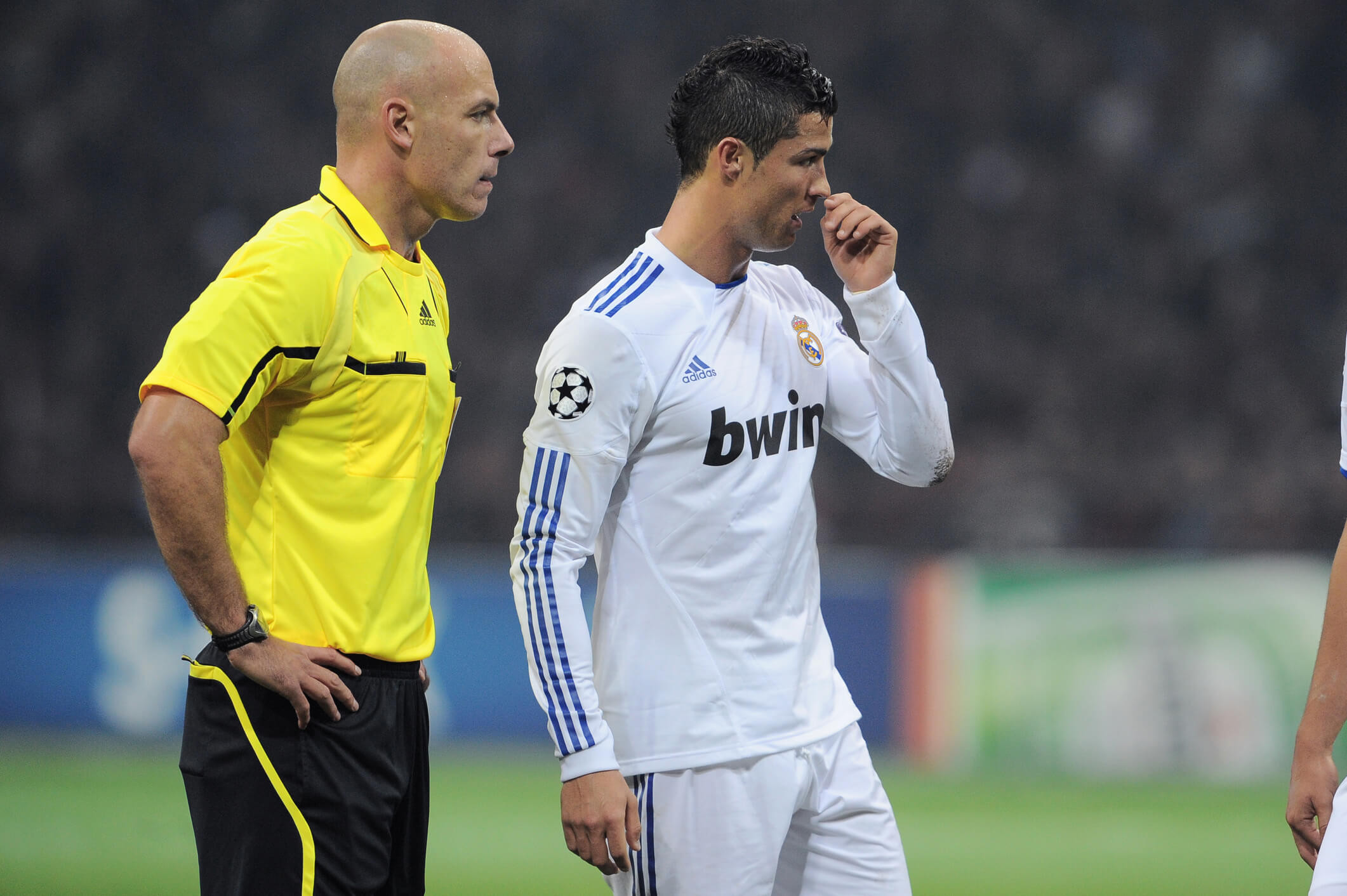 Howard Webb, coached by Keith Hackett, became one of the top refeerees of the game and provided countless refereeing peformances worth studying and learning from
Howard Webb, coached by Keith Hackett, became one of the top refeerees of the game and provided countless refereeing peformances worth studying and learning from
I now want to give you some insights into refereeing in order for all stakeholders to have a greater understanding. Referees have to develop a matrix of skills, and in this article I want to touch on a few of them for your consideration.
THE SIX ‘C’s IN REFEREEING
It is of course essential that a referee has a clear understanding of the Laws of the game, as well as a fitness and nutrition regime that ensures the adoption of lifestyle necessary to keep up with the game, even at the highest levels.
My rule of the Six C’s highlights other requirements of a match official.
CONTROL
The ability to have self control and to manage players and the soccer match. A referee must stay calm and composed, as well as authoritative and respected.
COMMUNICATION
The effective use of the whistle, giving it a loud blast when you are penalising those foul challenges. Any kind of communication must be clear and decisive.
CONSISTENCY
When you step onto the field of play in front of you is a blank canvas, the behaviour of players can change, and when substitutes take place the game may change as well. A referee needs to be aware of these potential changes, and despite them stick to his/her officiating instincts and decisions.
CONFIDENCE
Through positive body language you can display confidence, but take care because others may see it as arrogance. A referee must strike the balance of being authoritative and assertive without arrogance.
COURAGE
You will be called upon to make those big calls and you must have courage. You have earned the title of referee because of your knowledge and ability, so trust yourself and make your decisions decisively.
COMMONSENSE
I like referees who have an understanding of the game, and when and where appropriate will apply this skill set often to take charge of situations.
FITNESS AND MOVEMENT
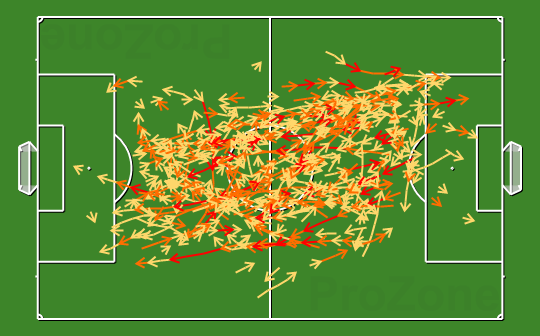
The slide demonstrates the movement of a top FIFA referee. The red arrows show the explosive short bursts of speed at approx. 7 yards per second.
Howard Webb in his games constantly delivered an average distance in excess of 12,000 meters, with 1,000 meters delivered in explosive sprints. It is clear that top referees must maintain an exceptional level of fitness, not only for covering long distances but also for frequent high-intensity bursts to keep up with the game.
MANAGEMENT SKILLS
Referees have to manage players, but at the upper echelons of the game they are in fact managing an event.
I expect referees to possess at least four skills in this area:
- Management Skills
- Interpersonal Skills
- Presentational Skills
- Cognitive Skills, (Anticipation/awareness – Better referees see things before they happen)
These abilities are necessary for managing an event with so many different variables.
BASIC PRINCIPLES OF DECISION MAKING
Decision making is the cornerstone of effective refereeing. In order to make appropriate decisions, referees must:
- Be able to communicate well
- BE ABLE TO HANDLE AND DEAL WITH CONFLICT
- Be fit and mobile
- BE PROACTIVE NOT REACTIVE
- Have a good knowledge and accurate implementation of the laws of the game.
- BE A GOOD MANAGER, OF PEOPLE AND EVENTS
THE DECISION MAKING PROCESS
SEE. RECOGNISE. THINK. ACT.
Referees must be a master of this process, able to make difficult decisions, often with heavy consequences, in a split-second and with confidence.
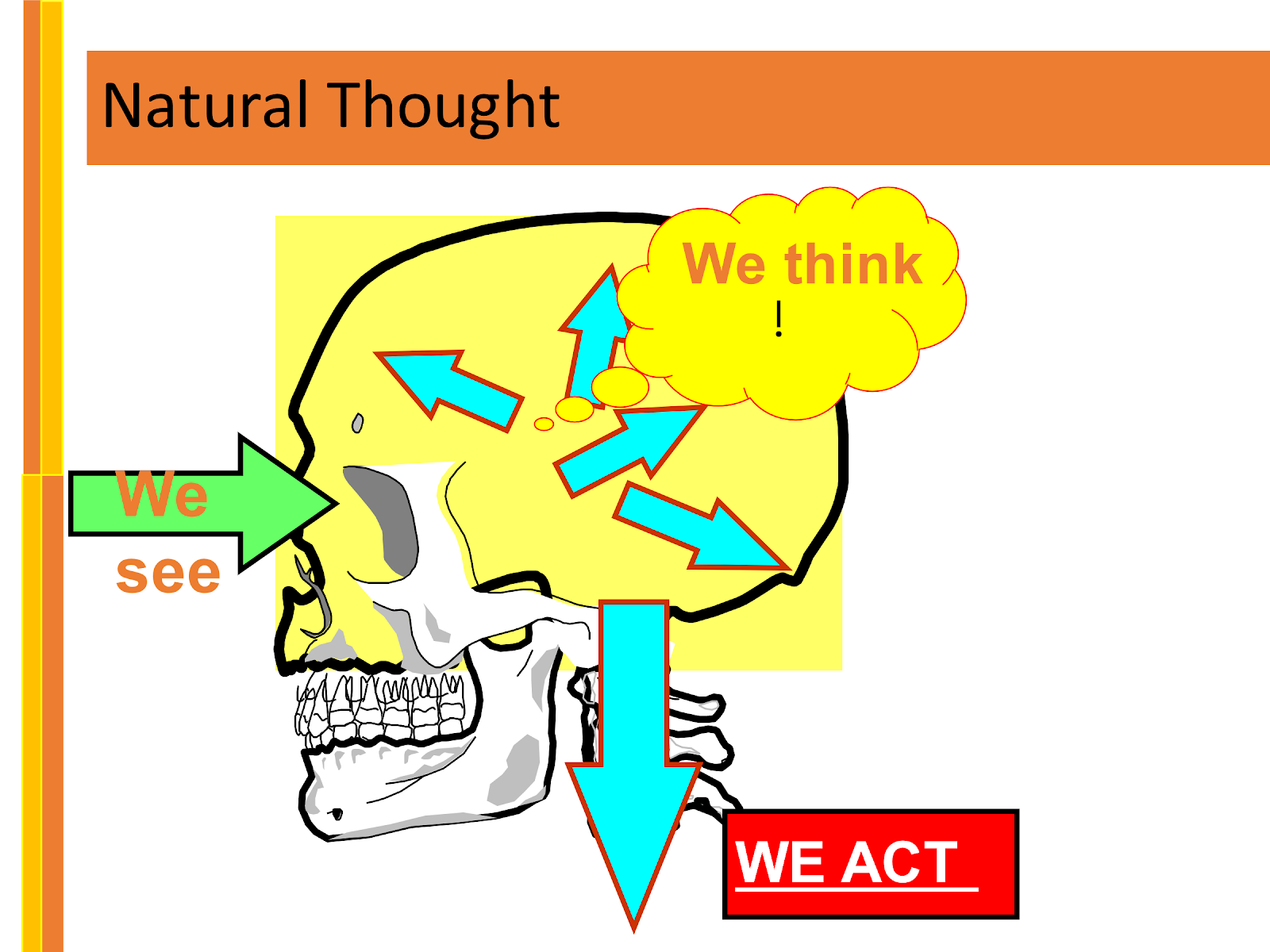
Step 1: SEE
- Fitness – mental/physical
- Viewing positions
- Dropping zones
- Scanning radar
- Reading and anticipating play
Step 2: RECOGNISE
- Messages from players
- Speed of challenge
- Fair or Foul?
- Player’s reactions
Step 3: THINK
Consider what you have seen, and what the appropriate response is.
Step 4: ACT
- Whistle, arms, voice
- Calm approach
- Air of confidence
- Firm but fair
- Correct application of Law
This is an insight into the world of officiating soccer from grassroots to the top. All referees must study, reflect on, and improve these essential aspects of their performance. Examine the discussed topics and consider which you might be able to improve in. Watch for each in professional referees at the top level, and see how they approach and handle different scenarios and challenges. Refereeing takes time and dedication, but with the right attitude and continuous learning you will see yourself improving.
Follow SportsEdTV Soccer on Facebook and Instagram to stay up-to-date with the latest content
“When I started refereeing in 1989 I desperately wanted to be like Keith Hackett. I had the build, the height and his South Yorkshire accent. What I did not have was his expertise. 21 years later I had the benefit of Keith as my Coach. Keith was instrumental in molding me into a Premier League referee, ultimately guiding me all the way to the 2010 World Cup.”
- Howard Webb, 2010 World Cup Final Referee

